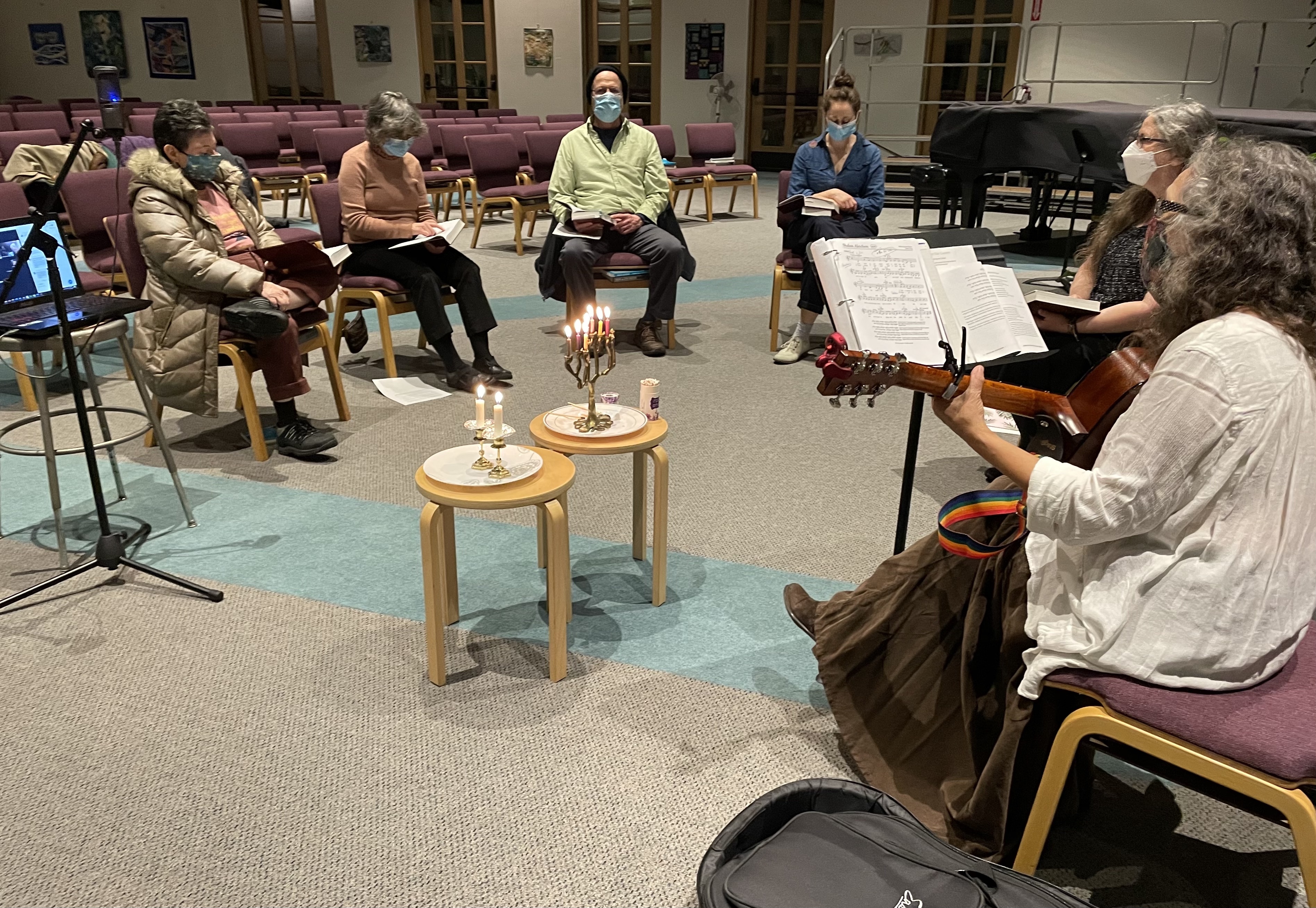For many years Kehillat Sukkat Shalom (formerly The Little Minyan) has joined with the organization T’ruah: The Rabbinic Call for Human Rights in honoring the anniversary of the adoption of the Universal Declaration of Human Rights by the General Assembly of the United Nations on December 10, 1948. The service is always held on the Shabbat we hold a service nearest to December 10. I was honored to co-create our 2021 Human Rights Shabbat service with Joanie Calem. Those in attendance took turns reading through the thirty articles of the UN Declaration, and I shared the thoughts below, interwoven with songs and verses of hope and prayer Joanie led.
After reading together through the UN declaration, one member sadly noted that all these years later, these human rights still seem highly aspirational rather than guaranteed. That reality was very much with us as we planned for and shared our thoughts during the service.
2021 marks the 10th anniversary of T’ruah’s partnership with the Coalition of Immokalee Workers, or CIW, the Florida farmworkers who are transforming human rights in American agriculture. Since that time, T’ruah has been bringing rabbis, cantors and rabbinical students to visit Immokalee with T’ruah and supported them in going back to their communities to share about what they have learned from the farmworkers.
As noted on the T’ruah website, 2021 also marks the 10th anniversary of the implementation of CIW’s Fair Food Program and the inauguration of the Fair Food Standards Council, the monitoring body through which the Fair Food Program achieves its hallmark transparency and accountability. In those 10 years, tens of thousands of lives have been changed for the better.
Our community’s former Spiritual Leader Rabbi Jessica Shimberg taught us about her experience as a part of a T’ruah delegation to Immokalee. Columbus is particularly important for the CIW efforts as Wendy’s, headquartered here in Columbus, is the largest fast food chain that still has not signed on to the Fair Food Program, so there have been and continue to be local actions that some of us have been able to support. Rabbi Jessica also brought to our community the custom of hosting this annual Human Rights Shabbat each December.
This year, in addition to continuing to lift up the important work of the Coalition of Immokolee workers, we used Shmita to draw new connections between Human Rights and Environmental Justice. Most of us are probably aware by now that this year, 5782, is a seveneth year in the Jewish calendar on which we are told to let the land rest. Direction in the Torah for the Shmita years also includes freeing slaves, cancelling debts, and returning land to its original owners. In his article on this topic, Human Rights and Ecology, Rabbi David Seidenberg notes that on the surface in reading about humans, other species and the land in the Torah, one might think that other species and ecosystems become subservient to human needs and desires. This way of thinking has allowed for the great damage that has been done in so many ways to our planet, the harmful impact of which is now becoming alarmingly clear. But beyond noting harmful impacts like climate change and mass species extinctions, Rabbi Seidenberg reminds us, “our humanity emerges from our connection to the earth.”
I know in our community conversations about our own experiences of spirituality, and for some of us, our connection to God, we often reference experiences in the natural world and connections with the Earth. At the center of the concept of Shmita is that the land itself has a “right” to rest. But justice for the Earth and for the people of the Earth are connected; our work toward both is essential. May this human rights Shabbat remind us and inspire us of the need to continue to work on all forms of environmental and social justice.
As Joanie and I prepared for the 2021 Human Rights Shabbat, the topic of Hope was coming up a lot for me. Reviewing our past Human Rights Shabbat services and topics and thinking about these heavy issues, especially as we continue to be deeply impacted by the global pandemic, impact of climate change, and constant national and international political crises, it can be easy to be overwhelmed and despair. This also hearkens back to the aspirational nature of the thirty articles of the declaration of human rights, and how frustrating it can be to think how far we still have to go to achieve their reality. In her book We Do This Till We Free Us. abolitionist Mariame Kaba is quoted as saying: “Hope is a discipline and we have to practice it every single day.” She also talks about taking a long view – that we are a tiny piece of a story that had much that went before and much still to happen besides our part in it. Across many different faith traditions, including our own, learning from the wisdom of our ancestors and acting now to build a better future for those who coma after us are underlying values. With this in mind, choosing to cultivate hope is a necessity. Our invitation from this year’s service is to invite all of us to continue to cultivate hope both inside ourselves and together as a community, as we continue in the important social and environmental justice work that is needed.
Save the Date for a Tu’B’Shvat-Shmita Shabbaton January 15th (10am-5pm) designed to help us do just that. More information and registration information coming SOON to this space!
Debra Seltzer
KSS Social Action Chair & Past-President

